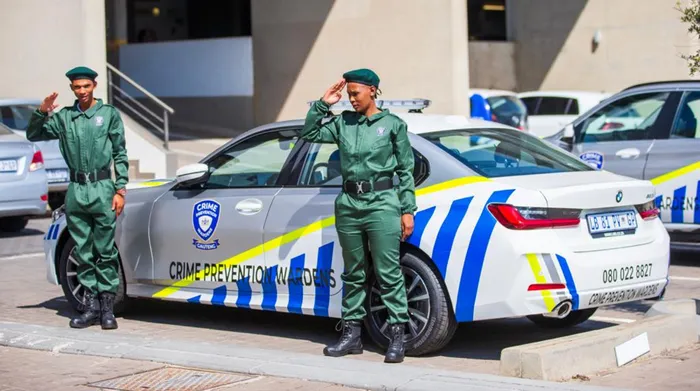Deployment of crime-fighting wardens could be replicated in other SA provinces

By Prof Bheki Mngomezulu
Crime statistics in South Africa have reached crisis proportion.
Each time Minister of Police Bheki Cele announces these statistics they send shock-waves through the spine. This untenable situation has several causal factors. They include, but are not limited to, negligence by some police officers when collecting evidence, incompetence by some state witnesses, judges who deliver questionable judgments, communities that are reluctant to work with the police, as well as a trust deficit in the country in general and within the justice system specifically.
When new Gauteng Premier Panyaza Lesufi delivered his maiden State of the Province Address (Sopa), he demonstrated his awareness of the space within which he is operating. As he delivered his address, Lesufi announced that his province was going to train no less than 6 000 crime prevention wardens. Their mandate would be to assist in addressing crime in Gauteng. This brought a glimmer of hope.
Some could not make sense of this announcement, simply because they did not even know what Lesufi was talking about. According to Section 334 of the Criminal Procedure Act (Act No 51 of 1977), these are peace officers. Their powers include being able to arrest people without having to first secure a warrant of arrest. They may also obtain the name and address of the suspect and appear in court as witnesses when a case is heard.
Those who thought that Lesufi was making an empty promise, like many politicians do, had to swallow their words when the first cohort of these trainees graduated after undergoing training for three months.
On April 30, a passing-out parade was held at Giant Stadium in Soshanguve. Although not all projected 6 000 wardens graduated, the 4 000 number was enough to demonstrate that the premier was not joking when he made the announcement that these wardens were going to be trained.
Another commendable observation about these wardens is that they are expected to be deployed strategically in hot spot areas – which includes townships in the main and then with some being deployed in the suburbs.
This was confirmed by Gauteng Traffic Police spokesperson Sello Maremane. Among the areas that were tipped off to benefit from this programme were Atteridgeville, Benoni, Brakpan, Daveyton, Soweto, Thembisa and OlievenHoutBosch in Centurion.
This spread of the areas serves as demonstration that the programme was cogently thought through and meticulously executed. In a way, this should not come as a surprise. Lesufi has proven to be one of the few reliable politicians. While he was MEC for Education in Gauteng, he performed well. It would be remiss of him to lower the bar now in his current portfolio as premier of the province.
While this is undoubtedly a commendable initiative which other provinces would do well to emulate, its success will depend on the support to be given to it by all stakeholders – including local communities. In this regard, the call made by the Gauteng Safety Committee on local communities to give these wardens all the support they need was a necessary one.
Without the support from communities, this initiative would amount to nothing. Not surprisingly, while this move has been applauded by many as rational and progressive, some have raised concerns and started casting doubt about its potential effectiveness. Among other reservations is the fact that not all these wardens will be carrying firearms when they are deployed. This concern is given credence by the fact that most of the time criminals are fully armed and vicious.
However, as per the 1977 Act, by definition, Crime Prevention Wardens are peace officers. Until that legislation is amended, it would be difficult to arm all of them in the same manner that other law enforcement agencies are armed. Perhaps this is an area that needs to be investigated urgently. Another concern is a common one that has been raised in respect of the SAPS. Some argue that it is not right to recruit people who are not fit for purpose in terms of their body weight. For example, pictures of Mahlatse Tseko dominated the media space. He was accused of not being "fit and agile".
Lesufi defended Tseko by saying that he would not be working alone but would be part of the collective. Another point worth noting in this regard is that discriminating against someone based on his or her body weight might be in contravention of the Constitution of the country.
Therefore, while constructive criticism of the programme was necessary, such criticism needed to be within the confines of the law to avoid any potential litigation. Put succinctly, the deployment of crime prevention wardens in Gauteng is a commendable move by Lesufi. All that is needed is collaboration by all stakeholders.
Prof Bheki Mngomezulu is Director of the Centre for the Advancement of Non-Racialism and Democracy at the Nelson Mandela University.
Related Topics: